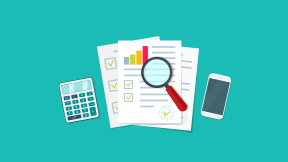Do deferred payments affect your credit score?

What is deferred payment?
Let's say you take out a loan to help pay for your new car. You've got a good credit score and you make your payments towards your loan on time and in full. You go about your day-to-day business, when suddenly, life happens—your spouse gets sick, and now you may have expensive medical bills to pay. Juggling a financial hardship like this can be stressful—but don't worry, you have options. One of those is deferring your payments.
A deferred payment is an agreement between you and a lender or issuer to make payments at a later date. For example, if you're looking to press pause on your auto loan, you could apply to defer your payments by two months. These payments would still be made by you but at a later date by tacking on two additional months at the end of your loan's term.
This is a temporary solution to help pause payments towards a loan. If this is an option to you, note that deferred payments operate differently depending on the loan, so be sure to check with your lender and the terms of your agreement. Additionally, deferment may not be available to you at all depending on your lender or financial institution.
Deferment marks appear on your credit report once your lender has approved it. But how does this affect your credit score?
In this article, you will learn about:
- What types of loans you can defer
- If deferred payments affect your credit score
- Other options in lieu of deferred payments
What types of loans can you defer?
The way a deferred payment works depends on the type of loan you're planning to pause. Regardless of the type, you will need to request and be approved for a deferment—it is not automatic. When you defer payments on a loan, your credit report may show this as deferment (or it could appear as “postponement," depending on the situation). Let's explore each of the different types of deferred loans in more detail.
Mortgages
When you defer payments on a mortgage, you agree to pay the missed amounts at a later date (such as when the mortgage term ends or when you sell your home). The duration of this pause is determined in the agreement made between you and the lender, but can generally last anywhere from 3-6 months. Remember, if you defer payments on a mortgage, you will be extending your loan's timeframe. Depending on your lender or financial institution, you may also need to pay additional interest over time.
Student loans
If you're currently a student, most lenders allow you to defer your payments while you’re enrolled at least half-time. Depending on which type you have, it's possible that deferring the loan could leave you responsible for paying accrued interest later on. Be sure to check your loan's terms when you request a deferral to see if you're eligible. There could be a variety of reasons that make you eligible for deferment—from medical treatments to economic hardships to graduate fellowships and more.
Auto loans
Otherwise known as a loan extension or postponement, some lenders may offer auto loan deferments. There may be certain criteria depending on the lender, such as submitting a written request to skip a payment or a hardship letter — where you describe your circumstances and why you need to pause payments. You may be able to skip payments for 1–3 months, but generally deferments don't last much longer than this when it comes to auto loans.
Do deferred payments affect your credit score?
Now that you understand what deferred payments are and that they can show up on your credit report, you may be wondering: does deferment affect your credit score?
If you're worried that taking a temporary pause on your payments will negatively impact your score, don't worry—requesting and being approved for a deferral can be a proactive way to avoid hurting your score. For example, rather than make late payments or miss payments entirely, which can significantly decrease your score, deferring loans can be a helpful way to pause payments and allow you crucial time to accumulate savings before you start making regular payments again.
While deferred payments don't directly impact your score, you don't want to rely heavily on them as a way to make your other payments. To maintain a healthy credit score, monitor your credit and find ways to adjust your budget so that you can get back into a routine of making regular payments. You may want to enroll in Chase Credit Journey® to get access to your free credit score and other free resources such as credit monitoring services, and credit planning tools to help improve your credit score.
Other options in lieu of deferred payments
Deferred payments are just one option when it comes to pausing payments. Let's explore other options you may have in more detail below.
Forbearance
In addition to deferred payments, you can go into forbearance. Forbearance is a temporary pause on payments towards your mortgage or federal student loans, or temporarily lowering your monthly payments. For example, you could request a forbearance from your mortgage lender to either pause or lower your monthly payments; however, interest will continue to accrue on your balances.
Deferment, on the other hand, doesn't necessarily generate additional interest. Forbearance and deferred payment are options that you must apply for. If you don't—and you continue to miss your payments—your loan could go into a state of delinquency.
Be sure to check in with your lender to discuss the terms and options available to you, whether that be deferring your payments or going into forbearance.
Delinquency and defaults
This can hurt your credit score and the consequences may worsen over time. If you continue to miss payments (typically for several months, but it could be a shorter period of time depending on your lender), you could default on your loan. A default happens when you are no longer fulfilling the terms of an agreement (on a loan or credit card). Defaults and delinquency are negative items that may appear on your credit report and hurt your chances of getting approved for future credit cards or loans.
In conclusion
Sometimes you need to hit the brakes on your payments. Whether you're struggling to make ends meet during a period of inflation, finding yourself in financial hardship or other difficult situation, remember that you have options. Deferring your payments is one way to proactively protect your credit score and responsibly negotiate an agreement between you and your lender.



